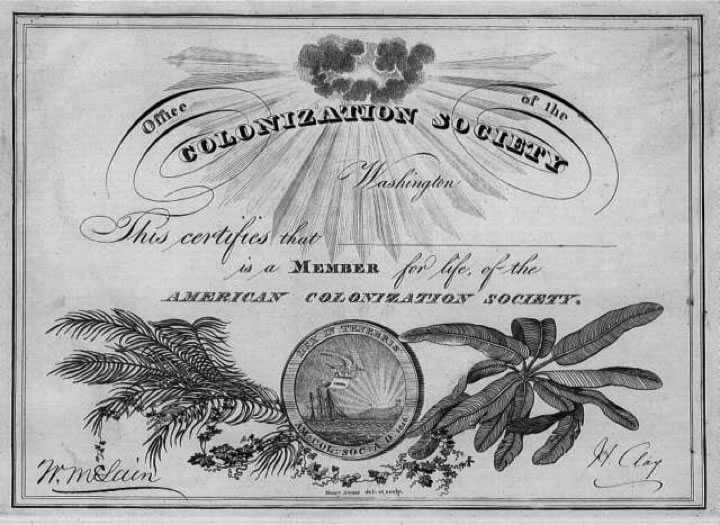The Origins and Ideas Regarding the American Colonization Movement
In 1816, Robert Finley identified the primary tenets of the radical American Colonization Movement. This political group boasted a collection of individuals who gathered to discuss and propose alternative futures for African-Americans (Harper). However, the American Colonization Movement did not represent the first group to endorse the idea of black Colonization, rather their ideas concerning Colonization dated to 1787 (“Africans in America”). Specifically, the Colonization effort described an attempt, on the behalf of numerous black and white American citizens, to commence the immigration of African-American individuals back to Africa (“The African-American Mosaic”).
The Proponents of the Colonization Movement
Many African-Americans supported Colonization because these advocates asserted that the discrimination of their race deterred their societal status and impeded their rights under the American Constitution compared to white Americans. Additionally, numerous white citizens realized that this discrimination helped to "purify" society from the contaminating force of the African-American population (“The African-American Mosaic”). However, other advocates who supported the political agenda proposed by the American Colonization Movement realized that the gradual migration of African-Americans back to Africa promoted “charitable work” that enabled black individuals to spread Christianity to the “natives” of Africa (“Africans in America”). Therefore, the ideas proposed by the American Colonization Movement reflected radical notions that many black and white Americans, respectively, supported as an initiative.
Influential Historical Figures and their Beliefs
Fascinatingly, numerous influential figures in American history reinforced the legislation and beliefs supported by the American Colonization movement including: James Munroe, Daniel Webster, and Henry Clay. The aforementioned men and other influential advocates met on December 21, 1816 to discuss the progress of the movement and draft a constitution (“American Colonization Society” Denison U.). Interestingly, the American Colonization Movement focused and promoted controversial policies including the endorsement of individuals that undermined the legislative rights of black Americans in regard to education, suffrage, and employment. The aforementioned actions inflicted by the supporters of Colonization attempted to subjugate black Americans creating a feeling of helplessness. This inferiority complex present in the United States led African-Americans to attempt to settle in other places, such as Africa, in an effort to escape discriminatory customs and legislation (“American Colonization Society” Denison U.).
The Colony of Liberia
Accordingly, our primary research focused on the efforts of the American Colonization Movement to support a colony within Liberia. This Liberian colony boasted 12,000 American black immigrants who searched for a better existence compared the situation they experienced in the United States (“Africans in America”). Interestingly, the African-Americans who immigrated to Liberia attempted to create a society that mirrored the idealized American lifestyle that African-Americans witnessed in the United States (“The African-American Mosaic”). Consequently, a key component of this Liberian existence represented the establishment of a school much like the institutions in the states that educated individuals. One of the primary advocates for such an education initiative was a Middlebury graduate in 1849, Martin Freeman. Freeman’s notable educational work in Liberia assisted in the establishment of an institute Liberia College which enriched Liberia citizens.
